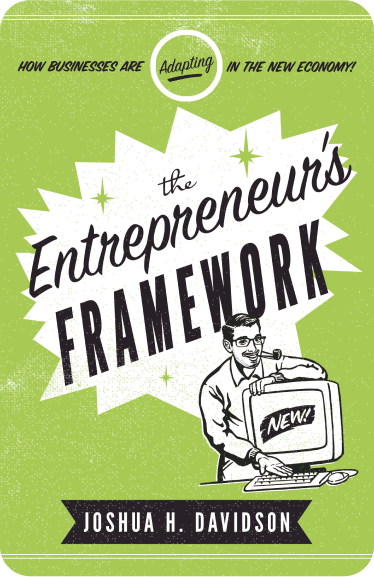Startups are a notoriously volatile and difficult business. This is especially if you’re new to the industry. In this case, it can also be hard to decode all of the lingo. What do we mean by ‘startup ecosystem’? And what exactly is a startup accelerator?
You’ve probably heard that last one thrown around a lot. Today, we will help you understand exactly what everyone means.
Whether it’s developing a product or service, or simply finding the right funding, there are numerous hurdles that face startup founders. This is why many entrepreneurs turn to startup accelerators.
In this blog post, we’ll dive into what a startup accelerator is, how it works, and the pros and cons of this exciting type of program!
Inside the Startup Accelerator
A startup accelerator is a program that provides mentorship, funding, and other resources to early-stage startups. There are a wide variety of them across the world.
Later in this post, we will give examples of some of the most well-known ones in the US, who they have worked with, and how you may be able to find some startup accelorators local to you!
These programs are typically run by experienced entrepreneurs, investors, and industry experts who share their knowledge and experience with the startups they support.
Startup accelerators are designed to help businesses grow quickly and efficiently, by providing the necessary support and resources they need.
A common misconception is that startup founders go it alone from day one, until the day when they sell their unicorn company.
This could not be farther from the truth! When we talk about the startup ecosystem, we are talking about a wide range of people and institutions coming together.
This includes startup accelerators and all of the professionals and creatives involved with them!
How Does a Startup Accelerator Work?
Starting a business from scratch can be a daunting task for anyone, let alone for someone with no prior experience. That’s where startup accelerators come in – as a guiding hand to promising entrepreneurs.
Accelerators are designed to provide a nurturing environment for startups to grow and mature rapidly. These programs offer a range of benefits, from access to experienced mentors to funding opportunities.
These exciting programs operate on a fixed-term basis that usually lasts for a few months, during which participating startups receive invaluable support through guidance, connections, and resources.
The idea is to equip startups with the skills they need to succeed in today’s highly-competitive business world.
With the right combination of talent and support, a startup accelerator can be just the catalyst that a budding entrepreneur needs to turn their idea into a profitable business endeavor.
The Potential Benefits

Joining a startup accelerator program can be a game-changer for entrepreneurs and early-stage startups. After all, a startup accelerator is an organization that provides resources, mentorship, and networking opportunities to help startups grow and succeed faster.
One of the key benefits is access to a community of like-minded individuals and experienced entrepreneurs. This network can provide invaluable connections and introductions to investors, potential customers, and collaborators.
Additionally, accelerator programs often offer workshops, boot camps, and one-on-one coaching sessions to help founders develop their business models, refine their pitches, and improve their overall strategy.
In short, when a startup enters an accelerator program, they typically receive funding, mentorship, and access to resources such as office space, legal and financial advice, and networking opportunities.
The accelerator program usually lasts a few months and culminates in a demo day where startups pitch their businesses to investors.
The Potential Cons of Joining a Startup Accelerator
While joining a startup accelerator might seem like an appealing prospect for entrepreneurs looking to grow their startups, it’s important to consider the potential downsides as well.
A balanced perspective is key. Some founders look at joining a startup accelerator or getting investors as the ultimate answer, which guarantees instant success.
We have actually written a post about why this may not be true, and how to approach working with investors in a more realistic way.
One of the biggest cons of startup accelerators is the loss of control and autonomy that often comes with participation in an accelerator program.
Startups may be required to give up a percentage of their equity or offer significant board control to accelerator investors. It can also be incredibly costly to enter many of them.
Additionally, the rush to meet specific program requirements can sometimes lead to a lack of focus on the long-term growth and vision of the startup.
Joining may require you to relocate too, which can be both expensive and disruptive to your personal life.
Generally, accelerator programs are short-term commitments, lasting a few months at the most. For many people, it’s simply not feasible to move across the country for a few weeks or months.
These factors should be carefully weighed before deciding if a startup accelerator is the right choice for your business.
Some of the Biggest Startup Accelerators
Startup accelerators have become integral to the entrepreneurial ecosystem. They provide many companies with the resources, mentorship, and funding needed to accelerate growth.
Some of the most famous startup accelerators in the world include Y Combinator, Techstars, and 500 Startups.
These accelerators have produced some of the most successful startups such as Airbnb, Dropbox, and SendGrid. While each accelerator has its unique approach, they all share a common goal of helping startups succeed.
For entrepreneurs looking to take their business to the next level, joining a startup accelerator can be a game-changer. The experience and connections gained can provide a significant advantage and increase the likelihood of success.
However, especially if you want to opt to join one of the more prestigious startup accelerators, the competition to get accepted is fierce. Most simply do not make it in.
But, those who make the cut often see significant benefits in their company’s growth.
Incubators vs Accelerators

Using the terms “accelerator” and “incubator” interchangeably is a common mistake. They are not the same, and knowing the difference is crucial.
While they are similar and sometimes can be found within the same organization, they are very different.
As the name suggests, startup incubators are tailored more to startups still in their incubation period for their ideas. As such, incubators help startup founders turn their ideas into early working prototype versions of a product or service.
Joining an incubator comes with many perks for early stage businesses. For example, incubators will typically let you use office spaces for twelve months, and in some cases every several years.
By contrast, accelerators work with an already existing startup that has some form of momentum and cash flow. They are best for startups with a complete co-founding team and an MVP that are looking to grow very quickly.
Which suits you better depends on where you are in your startup journey, how much cash flow you have, and of course the individual incubators or accelerators themselves. Always do your research!
Final Thoughts
In the end, a startup accelerator can be an invaluable tool for startups that have the potential to disrupt their respective industries.
It provides small startups with resources and know-how to maximize their performance and growth. It benefits businesses from industry giants all the way down to first-timers who are ready to take on the world of entrepreneurship.
Whether it’s using industry experts as mentors or providing capital funds to help you scale, there are plenty of advantages. However, it’s not without its drawbacks.
Accelerators usually require equity stakes in exchange for investing, as well as taking some control of your venture. Depending on the Accelerator, this can be good or bad.
Be sure to research any accelerator before you join. Take a look at their track record of success and failures. Talk to alumni and the current startups involved if you can.
Before taking on such a program, it’s important to weigh the costs and benefits that each brings. Know the difference between accelerators and incubators, and also realize that they are not your only options.
There are more funding and networking opportunities for startups today than ever before!
What do you think? Comment below.
Since 2009, we have helped create 350+ next-generation apps for startups, Fortune 500s, growing businesses, and non-profits from around the globe. Think Partner, Not Agency.
Find us on social at #MakeItApp’n®

















